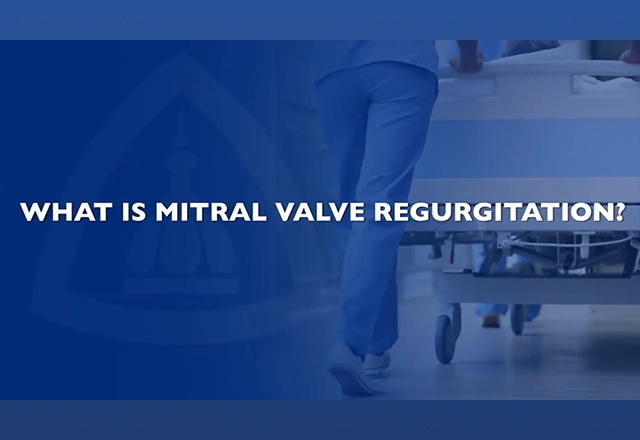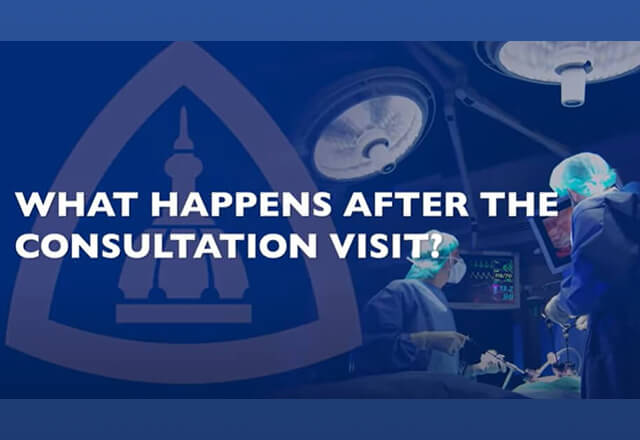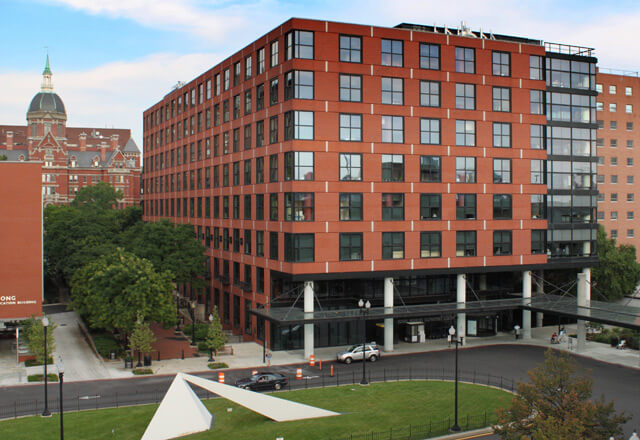At the Mitral Valve Repair Center at Johns Hopkins Hospital, our team, led by James S. Gammie, M.D., excels in advanced valve operations, including mitral valve repairs. Dr. Gammie directs a high-volume program, with more than 300 mitral valve procedures performed annually, including multivalve operations.
Our collaborative approach ensures exceptional outcomes, with a repair rate exceeding 99% for degenerative mitral valve regurgitation and 89% across all mitral valve disease etiologies. Our safety record surpasses national averages, and long-term outcomes are among the world’s best.
Skilled surgeons specializing in mitral valve repair can successfully fix 95-100% of degenerative valves, regardless of the cause. However, in the broader cardiac surgery field, only about 70% of valves are repaired. Barlow’s valves, which have more complex issues, need advanced techniques for repair.
Our team has expertise in all types of mitral valve disease and provides comprehensive repair and replacement for all patients.
What Is Mitral Valve Disease?
Mitral valve disease has two types: mitral valve regurgitation and mitral valve stenosis. Both conditions strain the heart and can lead to severe symptoms like arrhythmia, heart failure and permanent damage if not treated.
Mitral Valve Regurgitation

Mitral Valve Stenosis

Other Common Conditions That May Accompany Mitral Valve Disease
Atrial fibrillation: Atrial fibrillation (AFib) is a heart rhythm disorder marked by rapid and irregular electrical activity in the upper heart chambers, or atria. This irregular heartbeat can cause symptoms and increase the risk of complications like stroke and heart failure. Treatment involves medications and interventions to control heart rate and rhythm and reduce complications.
Tricuspid valve regurgitation: Tricuspid valve regurgitation occurs when the tricuspid valve fails to close properly, leading to the backflow of blood from the right ventricle into the right atrium during the heart’s contraction.
Medical team members at Johns Hopkins are also experts in treating these diseases.
Why Choose Johns Hopkins for Mitral Valve Surgery and Treatment
World-Renowned Experts

Advanced Surgical Techniques

Multidisciplinary Care

Mitral Valve Repair Outcomes at Johns Hopkins
The Johns Hopkins Mitral Valve Repair Center exceeds AHA/ACC criteria for early intervention.
| AHA/ACC Criteria | Our Mitral Valve Repair Center | |
| Mitral Valve Repair Procedures/Year | Not Specified | >300 |
| Repair Rate | 95% | >99% |
| Mortality Rate | <1% | <0.5% |
| Stroke Rate | <1% | <0.5% |
| Expert Periprocedural Imaging Capabilities | Yes | Yes |
| Heart Team with High-Risk Conference | Yes | Yes |
| Transparency Regarding Outcomes | Yes | Yes |
Patient Education
-
Podcast: Mitral Valve Disease
Dr. James Gammie, surgical lead and co-director for the Heart and Vascular Institute and cardiac surgeon-in-chief for the Johns Hopkins Health System, discusses mitral valve disease in this episode of “A Woman’s Journey: Healthy Insights That Matter.”

-
Video: Frequently Asked Questions About the Mitral Valve
Dr. James Gammie answers common questions about the mitral valve, such as what is mitral valve regurgitation, how significant it is to a person’s health to have this diagnosis, and how the mitral valve regurgitation is treated by repair or replacement surgery.

-
Video: Preparing for Mitral Valve Surgery
Cardiac surgery nurse practitioner Filomena Koenigsberg explains how to prepare for a mitral valve surgical consultation. She also reviews the necessary preoperative testing and what to expect prior to surgery.

Research Highlights
- Degenerative mitral valve repair simplified: An evolution to universal artificial cordal repair
- Effectiveness of telemedicine in a mitral valve center of excellence
- Isolated mitral valve surgery: The Society of Thoracic Surgeons adult cardiac surgery database analysis
- Early operation in patients with mitral valve infective endocarditis and acute stroke is safe
- Undersized rigid nonplanar annuloplasty: The key to effective and durable repair of functional tricuspid regurgitation
- Two-year outcomes of surgical treatment of severe ischemic mitral regurgitation
- Contemporary outcomes of operations for tricuspid valve infective endocarditis
- Repeat sternotomy: No longer a risk factor in mitral valve surgical procedures
- Prospective assessment of the CryoMaze procedure with continuous outpatient telemetry in 136 patients
- Pulmonary hypertension adversely affects short- and long-term survival after mitral valve operation for mitral regurgitation: Implications for timing of surgery
- Surgical management of mitral valve infective endocarditis
- Less-invasive mitral valve operations: Trends and outcomes from the Society of Thoracic Surgeons adult cardiac surgery database
Find Treatment Locations for Care
-
Levi Watkins, Jr., M.D., Outpatient Center
601 N. Caroline St., 7th Floor
Baltimore, MD 21287
-
Green Spring Station
Pavilion I
10755 Falls Road
Suite 360
Lutherville, MD 21093
-
Suburban Hospital
8600 Old Georgetown Road
Bethesda, MD 20814

